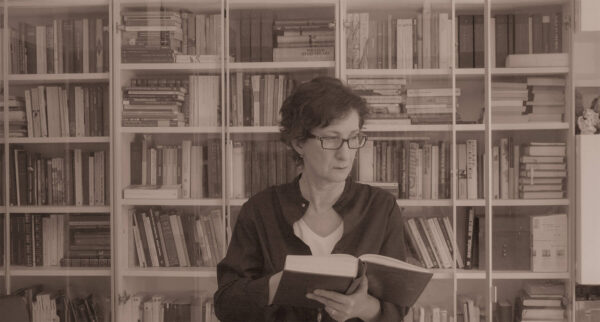What Makes a Good Novel?
Written by Ana Bilić

When I started writing, I never asked myself this question. My writing began – as with many authors – from the inner impulses to write and the need to articulate myself: in other words, from the finest essence of writing. The question only appeared later, and the answer came even later:
A good novel is made by a timeless theme and a writing style to match.
– A timeless theme is a situation that needs to be solved and that everyone can relate to at any time. All great literary works deal with a timeless theme. For example: forbidden love, arranged marriage, the death of the loved one, unscrupulous ambition, the rich and unfortunate, deep inner wounds, righteous revenge, taking your own path, sacrificial relationship, maladjusted, people with missions, heroes against their will, unrequited love, in a foreign culture, addiction, bringing family together, honesty at any cost, humor, etc. The catalog is inexhaustible. It is important to note that every timeless theme carries within it two irreconcilable views, a conflict that makes the theme complex.
Here’s part of the review that I’ve already published, but which represents well what I wanted to say:
“The novel “Brave New World” by Aldous Huxley was published in 1932 and to this day – almost 100 years later – it has not lost its relevance. In this day and age of rapid technological progress and access to information and thus to a different consciousness, the theme of paradise is more present than ever. What I find exciting about the classic „Brave New World“ are two points: It doesn’t get bogged down with black and white options of the possible better world – it provokes thought and shows how the controversial our idea of the world without pain would be as a reality…” The theme of paradise on earth, whereby the definition of paradise is controversial, is a timeless theme that is taken up very often.
There are also works that unanimously belong to the literary canon, but where the theme can be interpreted in many different ways. One example is the story „The Metamorphosis“ by Franz Kafka. Here, the theme – at least for me – is a metaphor for something that can be seen as a result of mass psychological phenomena: hostility towards minorities and anyone who is different from the majority. The fact that Gregor Samsa suddenly turned into a insect, which everyone loathes and ultimately wants to get rid of, can be interpreted as a metaphor for the position of Jewish citizens in Germany during the strengthening rule of the National Socialists in the 1930s. All of a sudden, the Jewish citizens become enemies who are to be rejected and despised and, in the end, do not even have the right to live. – Another example of Kafkaesque alienation is the situation with the first AIDS patients in the 1980s. Since the many of them were homosexuals – for some a symbol of moral shame – they became social outcasts with whom any contact was to be avoided, even though they were their neighbors, friends or relatives. – In the timeless theme of „The Metamorphosis“, too, the inherent conflict lies in the two extremes of mass behavior: on the one hand, that people in radical situations lose their rationality and their values in the masses and, on the other hand, that people in radical situations also feel close to their fellow human beings without feeling hostility, fear or contempt.
My novel What I Wanted to Tell You also deals with a timeless theme: non-conformism, in the case of a woman.
Nonconformism – the critical rejection of valid etiquette and the prevailing lifestyle – is something that often attracts a backlash from society: nonconforming people are, to put it mildly, „enfant terrible“ in society, who are not understood or do not want to be understood. And when a woman – who, historically speaking, should always conform to the norms – looks at many things critically and thinks differently about many things, then a conflict is inevitable. The main character Monika (single, with an immigrant background, without an academic education) embodies the contrasts of non-conformism: on the one hand, great individuality and strength of character and, on the other, the desire and need to belong to society and be a happy part of it.
So much for this time. I’ll write about the writing style as a characteristic of a good novel in the next blog post.
More Blog Posts
-
On the Uncertain Freedom of Being and The Great Gatsby
-
The Last Sentence – the Answer and the Fruit
-
About the Blue Portrait, or About Words as My Friends
-
How Can a Story Write Itself?
-
How Does a Writer Improve in Their Writing
-
Something Like an Eternal Literature
-
A Good Writing Style, or the Author's Guided Dialog
-
What Makes a Good Novel?
-
About My Bookcase, Oscar Wilde and My Vocation as a Writer
Impressum | Datenschutz | Kontakt